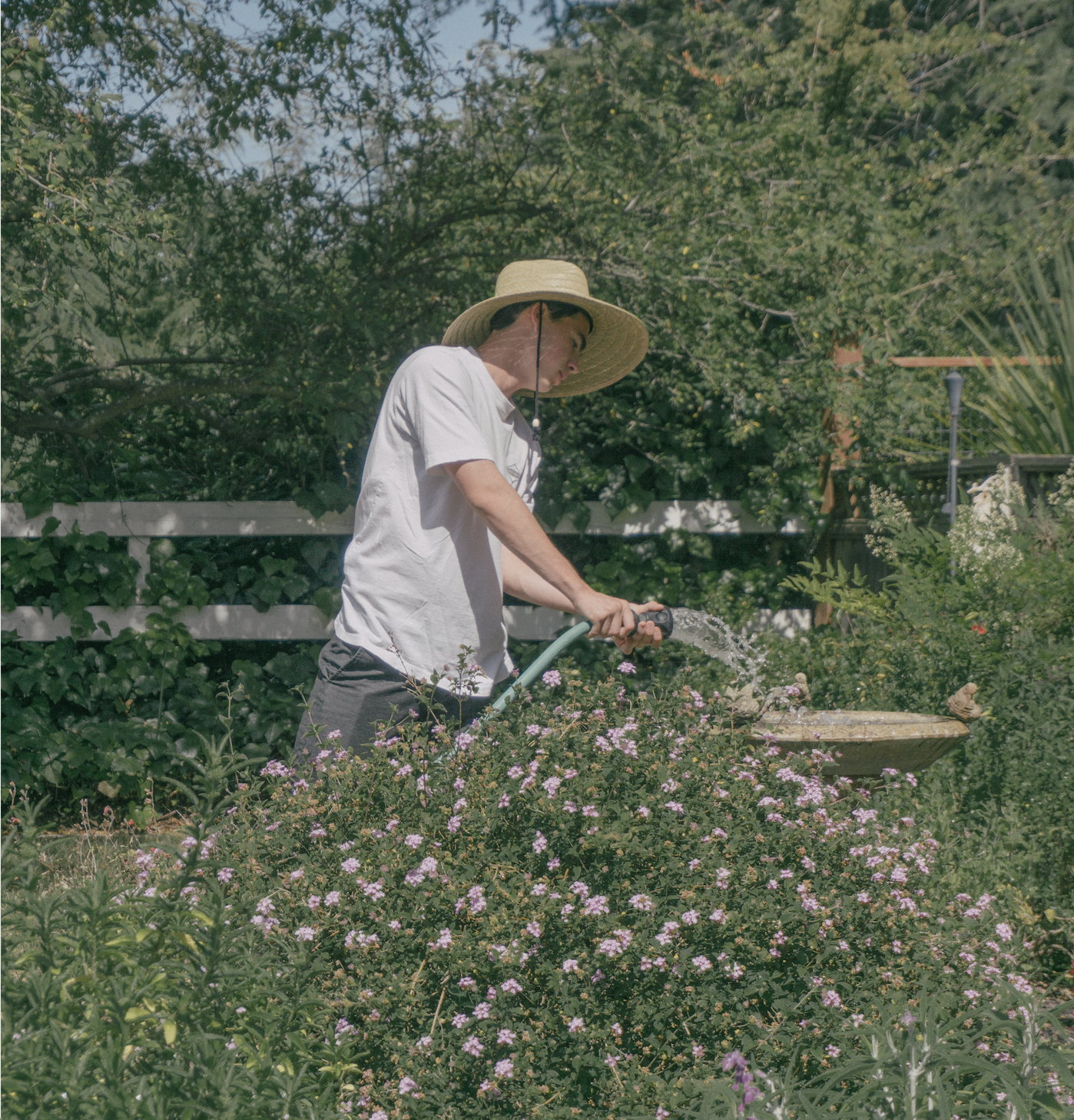Think Brown and Green: A Quick Persuasive Reasoning Behind Composting
By Mariel Wiley
When you think of composting, what do you think of? An organic farm? A ginormous pile adjacent to a backyard garden? Or do you just envision the smell?
I, for one, didn’t appreciate composting until I put in the work. During my senior year in college, the school started a composting initiative that collected food waste from dorms and academic buildings. Because I worked as an intern for the Office of Sustainability, I was a helping hand in the initiative, collecting compost and washing bins on a weekly basis. Of course, this also meant dumping food waste into a ginormous pile outside of the school’s garden. To be able to see the amount of food waste that was saved over the course of a year was astounding. Thousands of pounds of collective food waste was averted from a landfill, and that was just at one school.
Composting has become a more trendy act within the last couple of decades, as our conversation revolving around sustainability continues in relevance. However, composting has actually been an ideology for centuries, dating back to prehistoric times and spanning the globe. Citizens of Mesopotamia, the British Isles, the Mediterranean, and the Amazon rainforest all practiced composting starting 12,000 years ago.1 Composting has been practiced in the United States since before the birth of the country, as indigenous tribes often used fish as fertilizer. Interestingly enough, the language of these tribes offers evidence of the art of composting hundreds of years ago. For example, the Narragansett people called the fish they used “munnawhatteaûgs,” translating to “fertilizer” or “that which enriches the land” -- the word was later shortened (and corrupted) by the English to the “menhaden” fish.2
Why compost? From solely a sustainability perspective, composting has a wonderful effect on our planet by reducing food waste and creating a circular system; the soil is used to grow food, we eat our food and produce scraps, and these scraps are used in the soil that grows more food! Also, composting is an-almost guaranteed way to ensure healthy soil! Soil that was previously compost is nutrient-rich because it contains those same nutrients from the original food scraps. From a purely chemical standpoint, compost buffers the soil and brings the pH levels to a neutral level that allows the plant the flourish.3 Compost can also alter soil structure that prevents erosion.3 The advantages are endless.
How can you get started? I present to you: composting tips and tricks!
Start with your bin. If composting for personal use, make sure to have a bin with a lid that snaps shut. I cannot stress this enough -- not only are you preventing the smell from emitting, but you are preventing pests and bugs from gaining access to your precious compost.
Think brown and green! Within the bin, make sure to layer and mix your “brown” and “green” products. “Brown” products include leaves, newspaper, and sawdust; basically, if the product doesn’t produce mold, it’s considered a “brown” product. “Green” products include fruit and veggie scraps, tea bags, and coffee grounds. “Brown” products contain carbon, and “green” products contain nitrogen. Combining these elements helps produce the healthy soil that is yet to come.
If you can create a pile, mix mix mix! You should be mixing your compost on a weekly basis, but if that isn’t possible, try to mix a couple of times a month. Compost needs turning, hydration, and air. If you have these three components, you’re good to go.1 When the compost pile is dark and rich in color at the bottom, it’s ready for use! Depending on environmental factors, it could take multiple weeks to months.
City composting is easier than ever. Live in a city? No problem! Many cities now have programs -- from the public, nonprofit, and even the private sector -- that either collect compost from your apartment door or allow you to drop off your compost. New York City has GrowNYC and Reclaimed Organics. Los Angeles has LA Compost and Compostable LA. Chicago has WasteNot Compost. Washington D.C. has Compost Crew. Denver has Scraps. And this is just the beginning.
Think about what you put in the bin. What should you compost? Or more importantly, what shouldn’t you compost? This seems to be the age-old question.
Can Compost: fruits, vegetables, eggshells, coffee grounds, tea bags, shredded newspaper, non-bleached paper towels, plant trimmings (as long as they aren’t treated with chemical pesticides)
Cannot Compost: dairy products (create odor problems), meat/fish (create odor problems), pet wastes (might contain bacteria/parasites), fats/grease/oils (create odor problems), coal or charcoal ash (might contain substances harmful to plants).
It is my greatest hope that soon, everyone is able to compost even a minuscule amount. The benefits are endless, and the act of composting itself is very user-friendly. Cheers to composting in 2021!
Resources
The Green, Brown, and Beautiful Story of Compost by Aaron Sidder, National Geographic. Sep 2016
The History of Composting in America by Jim Loewen, the History News Network for Columbia College of Arts and Sciences at the George Washington University. Dec 2013.
Compost Benefits and Uses. Washington State University.

